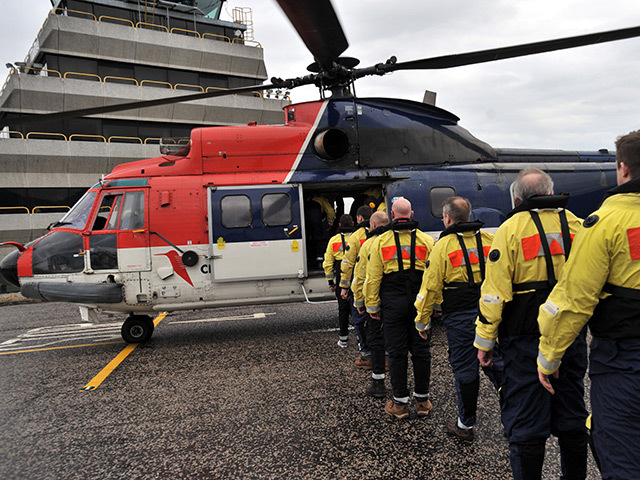
Ministers have rejected the Transport Committee’s call for a full, independent, public inquiry into the safety of helicopters used in the offshore industry. Louise Ellman MP, chair of the committee explains their disappointment.
Just over a year ago four passengers died when a helicopter crashed off the coast of Sumburgh, Shetland – the fifth such accident since 2009 involving the transfer of oil and gas industry personnel to or from offshore installations in the North Sea.
Following the Sumburgh crash, the Transport Select Committee launched an inquiry into the safety of helicopter operations where we heard evidence from a range of stakeholders – including accident survivors, work force representatives, the oil and gas industry and helicopter manufacturers themselves.
We concluded that a full, independent, public inquiry was urgently needed. In particular we found significant, unanswered questions around the impact of commercial pressure on helicopter safety standards. So we are deeply disappointed to learn that the Government has rejected this key recommendation.
The Government argues that an inquiry is unnecessary for two main reasons: First, that more time is needed to implement the recommendations made by the CAA after its recent review into offshore helicopter safety. Second, that there is insufficient evidence to support the basis of such an inquiry.
These arguments don’t stand up to scrutiny.
With reference to the first assertion: We accept that the CAA’s review is now driving some robust reforms within the sector, but we also believe the role and effectiveness of the CAA as primary regulator for the helicopter industry should also be examined. We called for this to form part of any public inquiry. The Government’s Response fails to acknowledge this.
Furthermore, the CAA is averse to examining the contractual obligations between helicopter operators and the oil and gas industry. While the CAA acknowledged “that helicopter operators reported that customer influence in operational matters was too extensive” the CAA’s review avoided examining this problem in any serious detail. Given the prevalence of the concern within the offshore work force – including pilots – about commercial pressures on helicopter safety standards, this is worrying omission.
Returning to the Government’s assertion there is little evidence to support the basis for a public inquiry, we disagree: When the Transport Committee spoke to survivors of the Sumburgh crash, they made plain there is anxiety amongst the offshore workforce that speaking out to report safety concerns could damage career prospects. We heard worrying stories from crash survivors and work force representatives about a macho bullying culture in parts of the offshore industry. In our view an independent public inquiry is the only body that could have the powers and resources to get to the bottom of these claims.
We were pleased that a number of our recommendations are accepted by the CAA, including a greater focus on listening to the experiences and suggestions for reform from crash survivors. We were also pleased the CAA plans to begin examining the UK’s reporting of incidents rate, an action we called for.
For the loved-ones and relatives of people killed in offshore helicopter accidents, the Government’s response to our report sends the wrong signal to people who continue to work offshore.
Recommended for you
